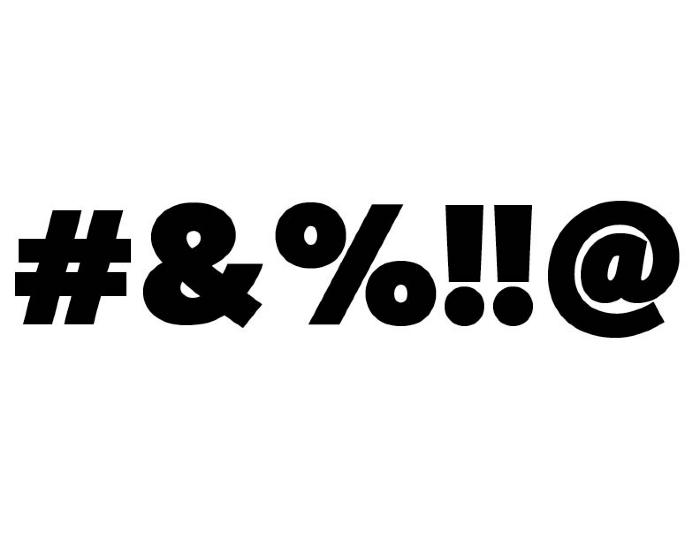Cursing / Cussing — Qanerluni (N), Qan’rluni (S)
Katallrianga kesiin qanernilngua! (N), Katallrianga kesiin qan'rnilngua! (S) – I fell but I didn't cuss!
Swearing is universal. Whether expressing anger, insult, shock, pain, or even pleasure, people worldwide have a tendency to use colorful terms. Profanity is popular, and it is probably as old as spoken language. Latin, the language of ancient Rome, has numerous vulgar words. Most of these terms relate to the human body and its functions. Many modern swear words in American English trace their origins to these obscenities.
Despite the global history of cussing, curse words are often culturally specific. Every society determines what words and subjects are taboo. Every society has its own set of expletives that reflect cultural values, social norms, and local history. Interestingly, words from related languages can have very different meanings. For example, the Yup'ik word for talking—qanerluni, means "to cuss" in the Alutiiq language. Such changes in word meaning can lead to funny conversations, particularly when speakers are unaware of the differences.
Like many children, Alutiiq youth learn that cussing is wrong and that it can have bad consequences. One Elder recalls his parents saying that the devil would come after him if he swore. Yet they also remember adults cussing at each other during arguments. Documenting these colorful words is difficult. Ironically, many Alutiiq swears are disappearing, as Elder speakers do not wish to share profanity with young language learners. In the past, however, comparing someone to a Tlingit person was a form of cussing. This practice reflected the historic rivalry between the Alutiiq and Tlingit peoples.
Despite the global history of cussing, curse words are often culturally specific. Every society determines what words and subjects are taboo. Every society has its own set of expletives that reflect cultural values, social norms, and local history. Interestingly, words from related languages can have very different meanings. For example, the Yup'ik word for talking—qanerluni, means "to cuss" in the Alutiiq language. Such changes in word meaning can lead to funny conversations, particularly when speakers are unaware of the differences.
Like many children, Alutiiq youth learn that cussing is wrong and that it can have bad consequences. One Elder recalls his parents saying that the devil would come after him if he swore. Yet they also remember adults cussing at each other during arguments. Documenting these colorful words is difficult. Ironically, many Alutiiq swears are disappearing, as Elder speakers do not wish to share profanity with young language learners. In the past, however, comparing someone to a Tlingit person was a form of cussing. This practice reflected the historic rivalry between the Alutiiq and Tlingit peoples.

